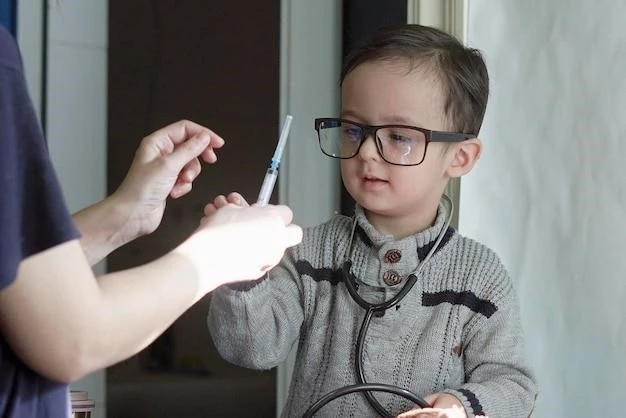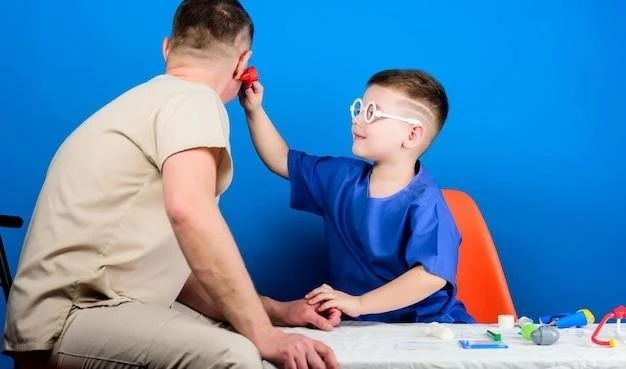Overview of Neuhauser–Daly–Magnelli Syndrome
Megacornea Mental Retardation Syndrome, known as Neuhauser Syndrome, is a rare genetic disorder. Main features include megalocornea, intellectual disability, and hypotonia.
Description and Symptoms
Neuhauser–Daly–Magnelli Syndrome, also known as Tremor-Nystagmus-Duodenal Ulcer Syndrome, is a rare genetic disorder characterized by essential tremors, nystagmus, and duodenal ulcers. The disorder presents with progressive symptoms including involuntary eye movements, ataxia, and duodenal ulceration. Individuals with this syndrome may also exhibit refractive errors and cerebellar signs. The exact cause of Neuhauser–Daly–Magnelli Syndrome is unknown, and symptoms may vary in severity from mild to severe. It is essential for individuals with suspected symptoms to seek medical attention for proper diagnosis and management.
Causes and Transmission
Neuhauser-Daly-Magnelli Syndrome is primarily a genetic disorder with some cases showing autosomal recessive transmission. The exact cause remains unknown but may involve spontaneous mutations or genetic factors.
Genetic Basis
Neuhauser–Daly–Magnelli Syndrome is an extremely rare genetic disorder with possible autosomal recessive transmission. The genetic cause of this syndrome is not fully understood, with some cases suggesting spontaneous mutations. Due to the rarity of the condition, specific diagnostic tests are currently unavailable. Further research is crucial to uncover the precise genetic mechanisms underlying this syndrome.

Diagnosis and Testing
Due to the rare and complex nature of Neuhauser–Daly–Magnelli Syndrome, diagnosis often involves a thorough clinical evaluation, genetic testing, and imaging studies to identify associated symptoms. Seeking consultation with a medical professional is crucial for accurate diagnosis and appropriate management.
Lack of Specific Diagnostic Test
Neuhauser–Daly–Magnelli Syndrome poses a challenge in diagnosis as there is currently no specific diagnostic test available. Detection of the syndrome often relies on a comprehensive clinical evaluation, genetic testing, and symptom observation to guide medical professionals in confirming the condition. It is essential for individuals suspected of having this syndrome to undergo thorough testing and consultation with healthcare providers for accurate diagnosis and appropriate management.

Symptoms and Affected Tissues
Neuhauser–Daly–Magnelli Syndrome manifests with essential tremors, nystagmus, and duodenal ulcers, affecting tissues like the cerebellum. Recognizing these symptoms early is crucial for timely management.
Tremor٫ Nystagmus٫ Duodenal Ulcer
Neuhauser–Daly–Magnelli Syndrome, also known as Tremor-Nystagmus-Duodenal Ulcer Syndrome, presents with essential tremors, nystagmus, and duodenal ulcers. These symptoms significantly impact a person’s quality of life and require specialized medical attention for proper management. Early recognition and intervention are essential to address the progressive nature of these symptoms and their associated effects on affected individuals.
Treatment and Management
Management of Neuhauser–Daly–Magnelli Syndrome focuses on supportive care and symptomatic treatment to address essential tremors, nystagmus, and duodenal ulcers. Seeking specialized medical care is crucial for effective symptom management and overall well-being.
Supportive Care and Symptomatic Treatment
Supportive care and symptomatic treatment play a crucial role in managing Neuhauser–Daly–Magnelli Syndrome. As there is no specific cure, focusing on alleviating essential tremors, nystagmus, and duodenal ulcers through specialized care is essential. Seeking guidance from healthcare professionals for a personalized treatment plan is key to effectively manage the symptoms associated with this rare genetic disorder.
Ongoing studies aim to advance knowledge on Neuhauser–Daly–Magnelli Syndrome, focusing on symptom management and potential treatment modalities. Stay informed about research updates and consider participating in clinical trials for new insights.
Research and Clinical Trials
Ongoing studies and findings related to Neuhauser–Daly–Magnelli Syndrome aim to improve understanding, potential treatments, and management strategies for individuals affected by this rare genetic disorder. Staying informed about research advancements and considering participation in clinical trials can contribute to further knowledge and advancements in the field.
Support Groups and Communities
Joining support groups and communities specific to Neuhauser–Daly–Magnelli Syndrome can provide valuable resources, connect you with individuals facing similar challenges, and offer emotional support on your journey. Exploring these groups can help you navigate the complexities of the condition and find a supportive network that understands your experiences.
Resources for Patients and Families
Patients and families affected by Neuhauser–Daly–Magnelli Syndrome can access valuable resources through support organizations, advocacy groups, and online communities. These resources offer support, information, and a sense of community for individuals navigating the complexities of this rare genetic disorder. Engaging with these resources can provide emotional support, educational materials, and connections to others with similar experiences, making the journey more manageable.
Prognosis and Complications
Understanding the prognosis and potential complications of Neuhauser–Daly–Magnelli Syndrome is vital for managing essential tremors, nystagmus, and duodenal ulcers effectively. Being aware of these aspects can guide treatment decisions and overall care.
Potential Long-Term Effects and Outlook
Understanding the long-term effects and prognosis of Neuhauser–Daly–Magnelli Syndrome can provide insights into managing essential tremors, nystagmus, and duodenal ulcers over time. It is essential to stay informed about potential complications and work closely with healthcare professionals to address any emerging issues and optimize care for a better long-term outlook.
Awareness and Campaigns
Participating in awareness campaigns and initiatives for Neuhauser–Daly–Magnelli Syndrome can raise visibility, encourage research, and provide support to patients and families affected by this rare genetic disorder. Engaging in advocacy efforts can contribute to increased understanding and resources for individuals living with this condition.
Rare Disease Day Initiatives
Participate in Rare Disease Day initiatives to raise awareness about Neuhauser–Daly–Magnelli Syndrome. These campaigns promote understanding, research, and support for individuals and families affected by this rare genetic disorder. By joining these efforts, you can help elevate visibility, foster research advancements, and enhance resources available for those impacted by the syndrome.
